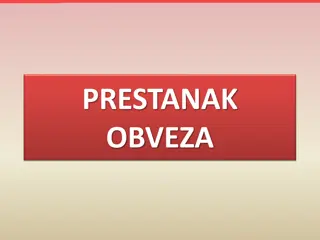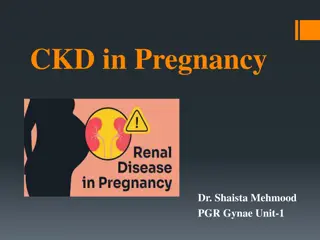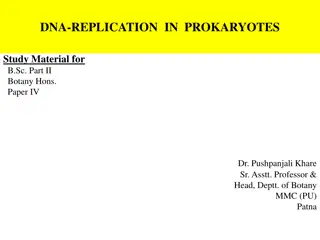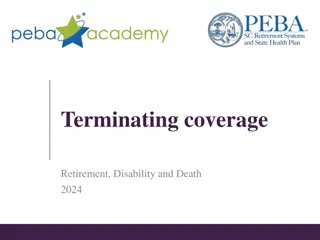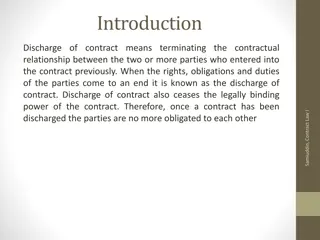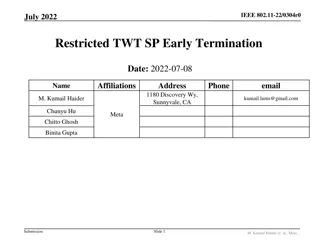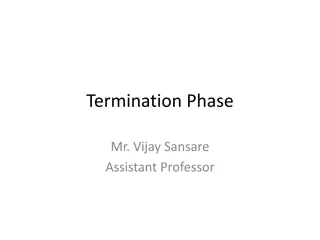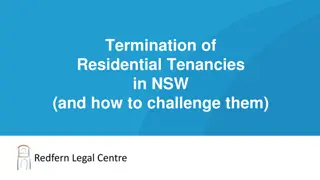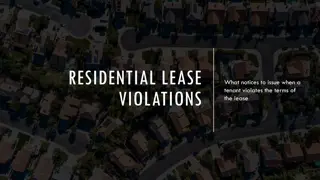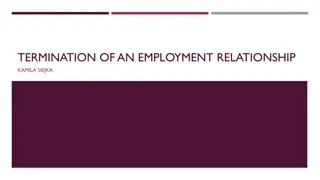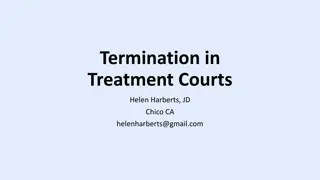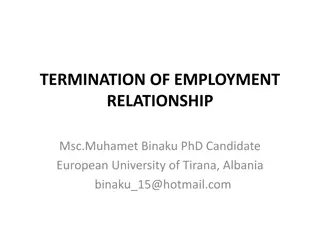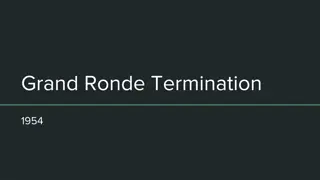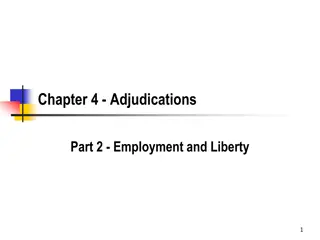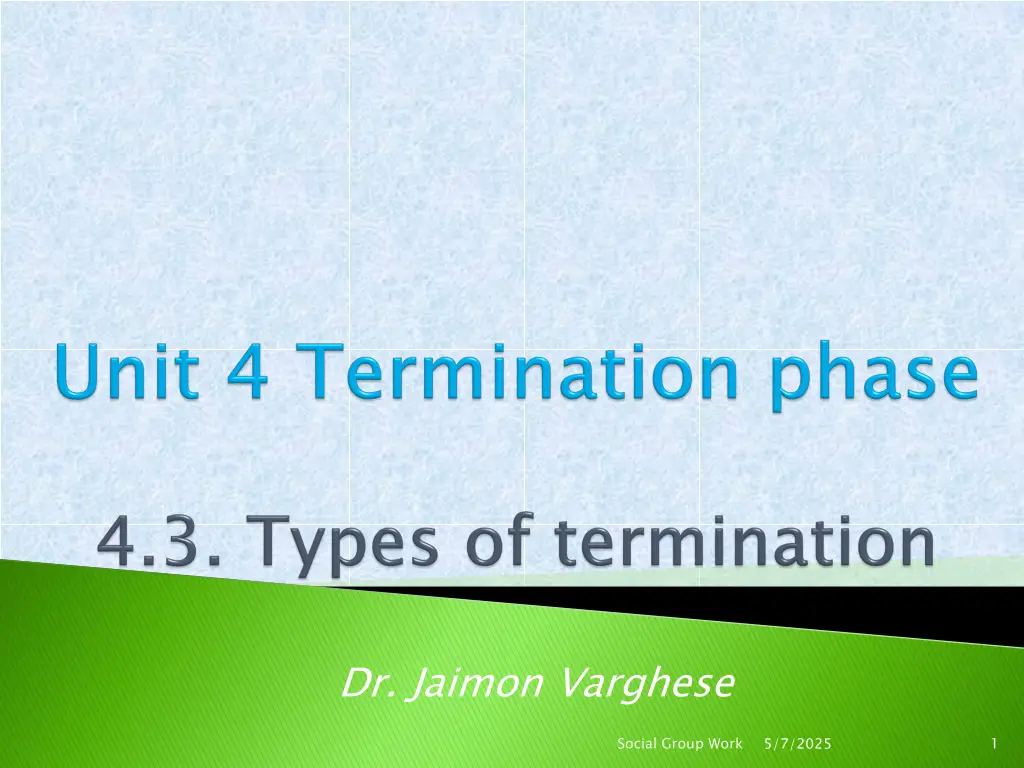
Understanding Termination in Social Group Work
Explore the various types of termination in social group work, such as scheduled and unscheduled terminations, positive and negative terminations, referrals, transfers, and more. Learn about handling termination processes, emotional reactions, evaluating progress, and planning for a group's ending.
Download Presentation

Please find below an Image/Link to download the presentation.
The content on the website is provided AS IS for your information and personal use only. It may not be sold, licensed, or shared on other websites without obtaining consent from the author. If you encounter any issues during the download, it is possible that the publisher has removed the file from their server.
You are allowed to download the files provided on this website for personal or commercial use, subject to the condition that they are used lawfully. All files are the property of their respective owners.
The content on the website is provided AS IS for your information and personal use only. It may not be sold, licensed, or shared on other websites without obtaining consent from the author.
E N D
Presentation Transcript
Dr. Jaimon Varghese Social Group Work 1 5/7/2025
4.3. Types of termination ( (IGNOU, 2008:263 Scheduled Termination (preplanned) Unscheduled Termination (unplanned / abrupt) Positive Termination (of a successful group) Negative Termination (of an unsuccessful group) Referral (change of worker) Transfer (change of agency) Member turnover (recurring groups) 4.3. Types of termination IGNOU, 2008:263- -265 265) ) Social Group Work 2 5/7/2025
Completion of task / achievement of goals Incompetency of worker / leader Members dropping out Transfer of members Leader / worker leaving
Acknowledge the activities accomplished Sweet sorrow reaction (ambivalence) Ceremony to commemorate and recognize the group accomplishment Termination announced one or two meetings prior to of the formal ending Sharing of members / leaders / worker s feedbacks
Progress in task accomplishment and goal achievement is evaluated Make plans for continued work by the members on remaining tasks Plan for the unresolved, last minute issues that are identified by members Dealing with the emotional reactions of member upon termination Discuss to plan for a special social event for the group s ending
Scheduled or unscheduled Goals are largely unmet Tasks are incomplete Unsuccessful group often ends abruptly Reactions anger, frustration, disappointment, despair, guilt, scape- goating, blaming and apathy E.g. group formed to procure a grant or raise funds which was unsuccessful
Members may be highly critical of leader of other group members, or of situation / environment Leader contact members to gain their thoughts about group and prepare a critical feedback Visualize possible criticism and then formulate the positive and realistic response to each anticipated criticism
Reasons for the lack of progress / failure of the group are assessed and analyzed Discussion on alternatives for the group and its members to reach their goals Dealing with the emotional reactions of member upon termination
Disagreement or dislike with other members / leader / worker Members may start a new job and leave group for want of time and convenience Members living situation / environment changes / crises Migration / shifting of residence
Leader / worker resolve the conflicts so the members may return to group Exploring the reasons for leaving a group Leader modifies the role of members for their belter / positive contribution Unavoidable circumstances
Transfer of members to another group for better professional services Agency may decide to use capacities of member / leader / worker to some other place Unresolved conflicts in group
Group leader may terminate the work with a group because of reassignment, change of employment, health reasons, family crises, transfer, shifting of residence, etc. Selection and introduction of new leader Shifting / reassignment of roles and responsibilities of members
IGNOU (2020) MSW 008 - Social Group Work: Working with Groups (rev. ed.). New Delhi: School of Social Work, Indira Gandhi National Open University Social Group Work 13 5/7/2025
Social Group Work 14 5/7/2025

